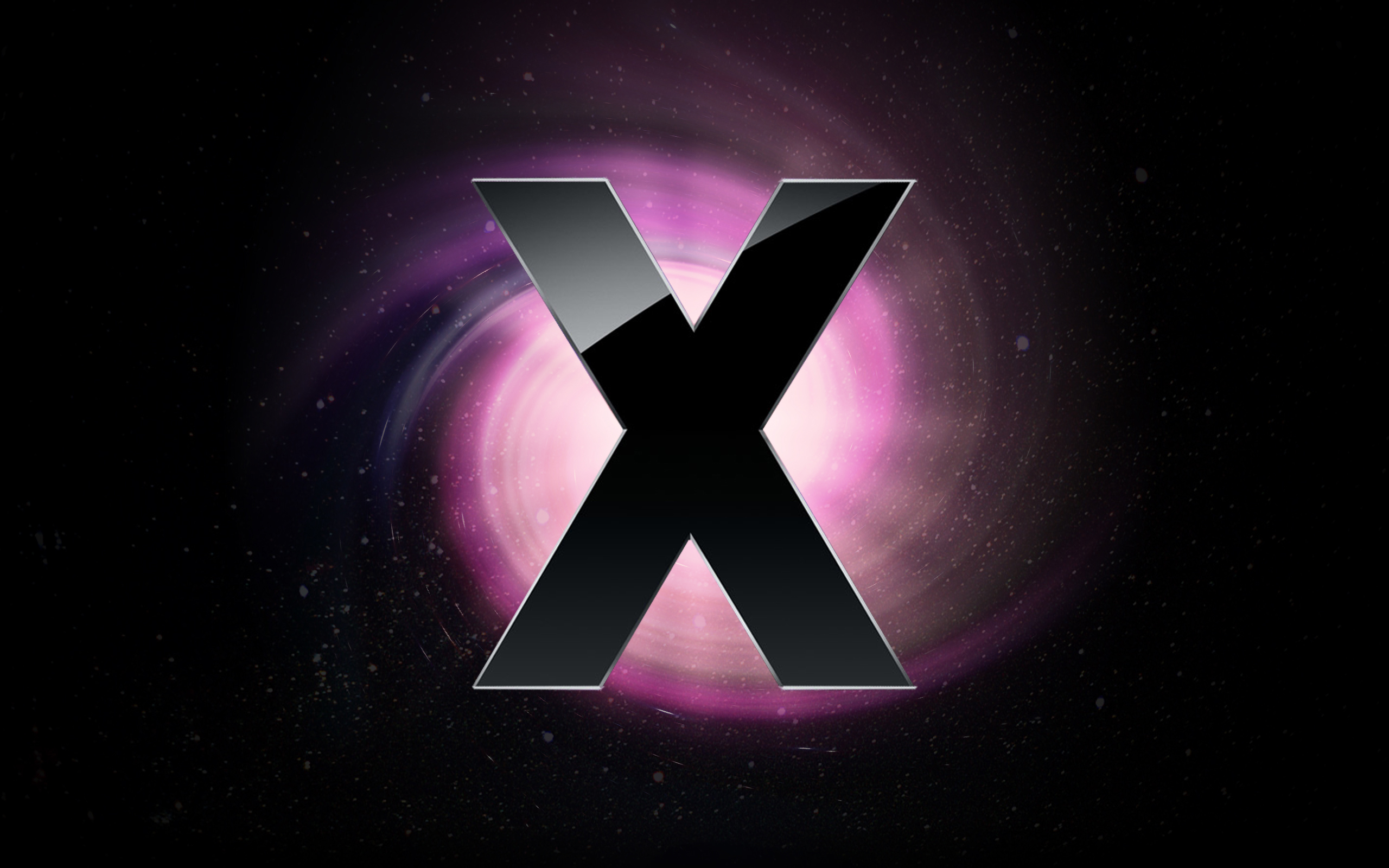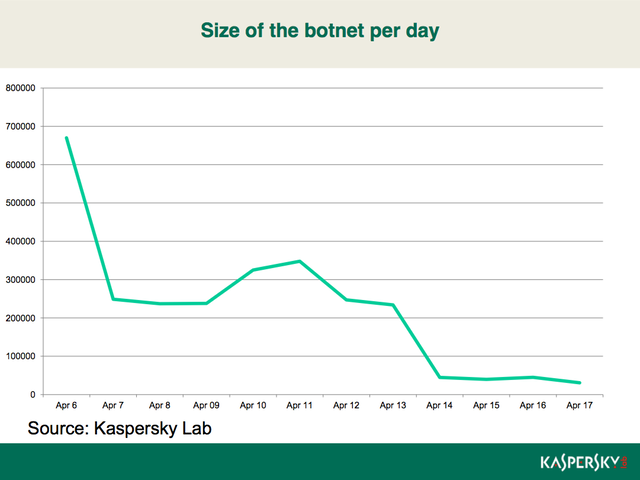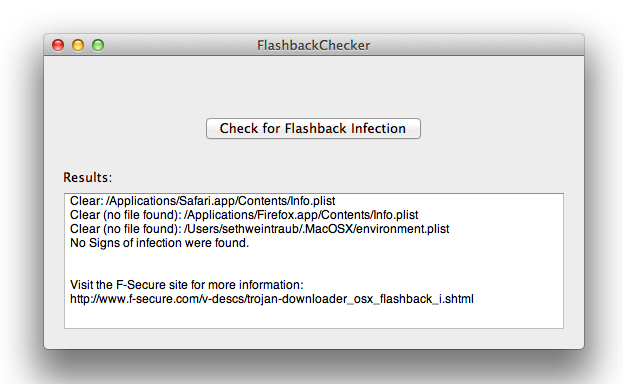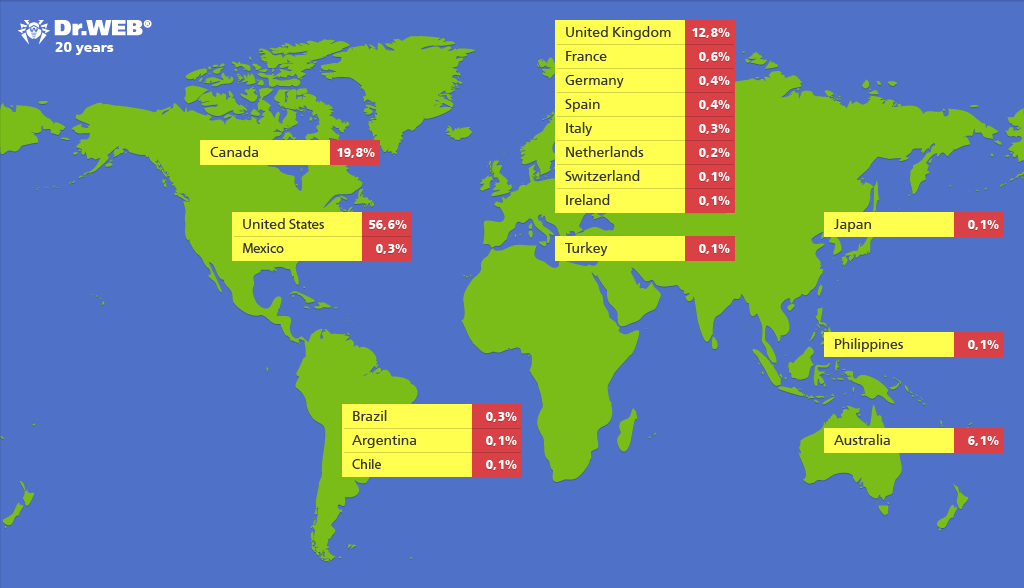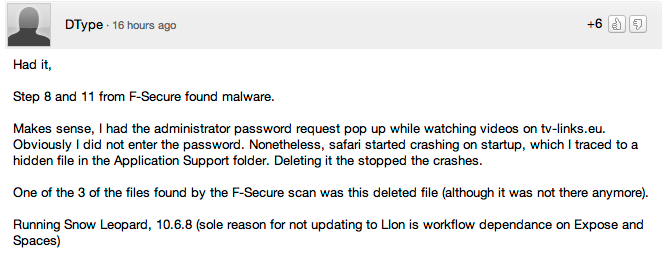
Apple softens its language on Virus susceptibility in wake of Flashback trojan
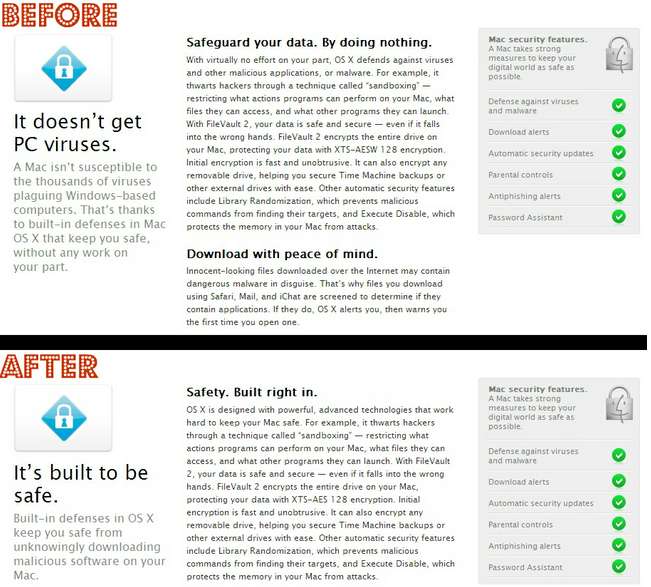
After Apple released a patch to a Java vulnerability that lead to the infection of roughly 600,000 Macs with the Flashback Trojan earlier this year, there were claims weeks later from security researchers that hundreds of thousands of Macs were still infected. Kaspersky’s CEO claimed Apple is “now entering the same world as Microsoft has been in for more than 10 years.” Now, as noted by PCWorld, Apple appears to be publicly changing its longstanding stance that “it doesn’t get PC viruses.” The statement on Apple’s “Why you’ll love a Mac” website now reads: “It’s built to be safe” (as you can see in the comparison screenshots above).
Another statement on the website switched from “Safeguard your data. By doing nothing” to “It’s built to be safe.” Following the Flashback incident, Kaspersky claimed in April that Apple is “ten years behind Microsoft in terms of security,” and he “expects to see more and more” malware on Macs.
Cyber criminals have now recognised that Mac is an interesting area. Now we have more, it’s not just Flashback or Flashfake. Welcome to Microsoft’s world, Mac. It’s full of malware….Apple is now entering the same world as Microsoft has been in for more than 10 years: updates, security patches and so on,” he added. “We now expect to see more and more because cyber criminals learn from success and this was the first successful one…. They will understand very soon that they have the same problems Microsoft had ten or 12 years ago”
